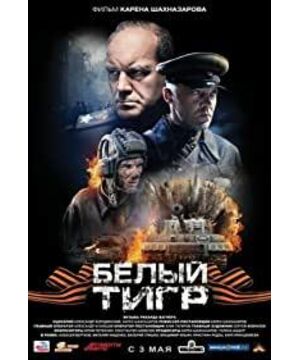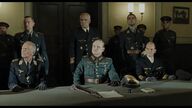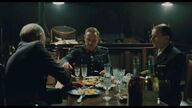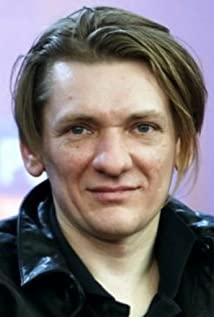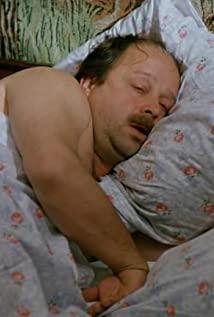This film is obviously a product of whimsical deconstruction of the Great Patriotic War to a new height. It may not be the director's own will, but it reflects the new attempt of the new Tsarist society in the view of history. I was a little hesitant when I saw that the introduction was a fantasy war movie, but considering that I am not a fan of weapons, symbolism and metaphors seem to reflect the style. The theme of war ghosts sounds quite grand and profound, so I took a look. As a result, the background is basically faded, the characters are basically blurred, and the plot is basically bullshit. The art is quite exploratory, but I didn't see anything except to show the anxiety and unease of the new Tsarist Russia about the real situation. I have to say that rising to the height of the national spirit and the confrontation between the East and the West is indeed quite creative. No matter what else, the flag of the Soviet Red Army is justifiably ignored first, and the protagonist forgot The origin of the name, and said that the origin of the name is not important, so there is no need to mention the word Soviet Union, because it is not important.
Symbols and metaphors are not a problem, but how can a work be supported by symbols alone? The music score also needs to talk about the rhythm. The overall rhythm and details of the film are really confusing. Since this film is no longer a war film in the usual sense, the common-sense military mistakes that have been criticized by military fans are harmless, and the symbolic treatment of characters is not necessary, but the background and characters are in the original creative intention. Outside the era, the lack of typical environments and typical characters makes the plot even more important. But what we see is a symbol for a symbol, a metaphor for a metaphor, the three confrontations between the protagonist and the white tiger who build the main frame of the whole film, at best, it is a story, or incomplete and superficial, with almost no plot and no climax. In other words, the side rendering and the first two head-to-head confrontations were like rushing to the field. The white tiger came out and showed his teeth and claws in front of the kitten and then finished the work. The glorious tradition of the real fact of the trenches was not inherited at all, and a god of tanks was dismissed. This can still be explained by the desire to promote first, but the third time is the long-awaited climax, and the audience's emotions have also been mobilized to the peak. However, the world is impermanent and unpredictable, and it is not incomprehensible. As long as there is a beautiful ending, everything is not a problem. However, the war part is basically over at this point, yes, over. In fact, I am very suspicious that this kind of plot handling is deliberately done by the director, not to mention that a mountain is still lower than a mountain, "White Tiger Style" can at least tell the story according to the development of the incident, without inserting some crap into it. In the attempt to reconstruct the view of history, it is not as disgusting as "Russian Ark" as aristocratic.
At the end, the victory was confusing. I did not see the posture of the Soviet Red Army driving the invaders out of the country and planting the red flag in the enemy's capital. On the contrary, the negotiating table and ice cream spent a lot of writing and ink. Is it to imply that the so-called German spirit is actually just a kind of Something that is pretending to be self-deceiving? But in the director's mind, this is probably not important, it should be just for the next highlight. We don't need to say more. After all, the Long March has only completed the first step. "Victory Festival" is not something you can sing if you want. At the end of the film, after a long foreshadowing, the real finishing touch finally shows its true content, which is not only a period, but also another climax of the film - a closing admiration published by Hitler, who is in a superposition of life and death. From the selection of this heavyweight dragon set, it is not difficult to find that the director finally remembered that this is the theme of World War II. The problem is that the front is riveting and playing overhead, except for the prisoner of war who is possessed by the spirit of the white tiger and shouting. There is nothing involved in the so-called German spirit. It's the only one, isn't it too abrupt to appear suddenly? Up to the time of Qiajiang, it was not the style of the headquarters at all, and Lao Xi's speech had such a strategic vision that surpassed the times. After playing such a hand, is it a sublimation theme or a high-level theme?
From the text itself, there is only one explanation that can make the logic clear, that is, the Great Patriotic War was really just a spark in a long confrontation, and Germany was not a real opponent at all. It doesn't even need any in-depth discussion to support this logic. In fact, as long as there is a big guy within sight, it is impossible for the West to really relax its vigilance, whether that big guy is called the Soviet Union or the Russian Empire. The problem is that there is no abstract supernatural tanker in the real historical dimension of Mao Xiong, only Alyosha who has become thousands of flying white cranes, but they seem to be insignificant in the director's vision. Back then, Comrade Steel was in charge, but now I can only imagine that the Crimean prosecutor will one day become Ekaterina.
View more about White Tiger reviews


